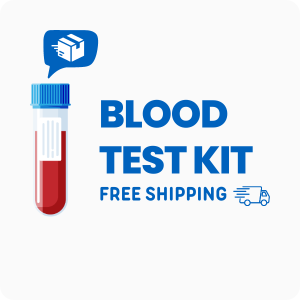Ordering the Comprehensive Elements Profile | ZRT Labs
The Comprehensive Elements Profile from ZRT Labs helps check for both toxic and essential elements in your body using a simple urine and blood spot sample. This test can help find imbalances that may be linked to symptoms like fatigue, headaches, digestive problems, or changes in mood. Interestingly, even small changes in elements like selenium or iodine can affect how your thyroid works and how your body handles stress.
Ordering this test gives you a clear look at your levels of important minerals and possible toxins. Here are some specific benefits of ordering:
- Checks for heavy metals like mercury, lead, and cadmium that may build up over time.
- Measures key minerals such as magnesium, zinc, and copper that support energy and muscle function.
- Helps spot hidden exposures to toxins that may not show up in routine blood work.
- Assesses iodine and selenium, which are important for thyroid and hormone balance.
- Provides a detailed report to help guide next steps with your healthcare provider.
Who Should Consider Element and Heavy Metal Testing
People who have ongoing tiredness, trouble with memory, or unexplained stomach issues may benefit from this test. For example, someone who has tried changing their diet and lifestyle but still feels weak or has frequent headaches might find answers by checking their mineral and toxin levels.
Ordering may also be helpful in these situations:
- Experiencing hair loss or brittle nails that do not improve with supplements.
- Having skin rashes or irritation that do not respond to common treatments.
- Living in an area with known water contamination or old plumbing.
- Working in jobs with possible chemical or metal exposure, such as construction or manufacturing.
- Noticing changes in mood or sleep after moving to a new home or starting a new job, which can sometimes be linked to hidden toxins.
Checking for mineral and heavy metal imbalances can help you find out if your symptoms are related to something in your environment or diet. Waiting to order this test could mean missing the chance to address a problem before it gets worse or affects other parts of your body.
Preparing for Your Element and Mineral Screening
Fasting is not needed for this test, so you can eat and drink as usual before collecting your samples. Make sure to carefully follow any instructions your doctor or healthcare provider gives you to get the best results from your test.
Labs Included When Ordering Your Comprehensive Elements Profile | ZRT Labs
| Test Name | Reference Range | What This Test Shows | Low and High Levels of Each Marker |
|---|---|---|---|
| Toxic and Essential Elements (Dried Urine) | |||
| Iodine | 100-900 | Iodine is needed for making thyroid hormones, which help control energy and metabolism. This test checks if your body has enough iodine for healthy thyroid function. |
High levels mean you may be getting too much iodine, which can affect thyroid activity.
Low levels mean your thyroid may not have enough iodine to work properly. |
| Bromide | 0-5 | Bromide is a chemical sometimes found in food and water. This test helps find out if you have been exposed to too much bromide, which can interfere with iodine use. |
High levels mean bromide may be blocking iodine in your body.
Low levels mean there is little or no recent exposure to bromide. |
| Selenium | 50-200 | Selenium is a mineral that helps protect cells and supports thyroid hormone production. This test checks if you have enough selenium for these important roles. |
High levels mean you may be getting too much selenium, which can cause stomach upset or nerve problems.
Low levels mean your body may not be able to make enough thyroid hormone or protect cells from damage. |
| Arsenic | 0-15 | Arsenic is a toxic metal that can come from water, food, or the environment. This test checks for recent exposure to arsenic, which can affect many organs. |
High levels mean you may have been exposed to arsenic, which can harm nerves, skin, or digestion.
Low levels mean there is little or no recent exposure to arsenic. |
| Mercury (Urine) | 0-5 | Mercury is a heavy metal that can build up from fish, dental fillings, or pollution. This test checks for mercury in your urine, showing recent exposure. |
High levels mean you may have been exposed to mercury, which can affect nerves and memory.
Low levels mean there is little or no recent exposure to mercury. |
| Cadmium (Urine) | 0-1 | Cadmium is a toxic metal found in some foods, batteries, and cigarette smoke. This test checks for cadmium in your urine, which can affect kidneys and bones. |
High levels mean you may have been exposed to cadmium, which can harm kidneys or bones.
Low levels mean there is little or no recent exposure to cadmium. |
| Toxic and Essential Elements (Blood Spot) | |||
| Cadmium (Blood) | 0-1 | This test checks for cadmium in your blood, which can show both recent and long-term exposure. Cadmium can affect kidney and bone health. |
High levels mean you may have ongoing exposure to cadmium.
Low levels mean there is little or no recent or past exposure to cadmium. |
| Mercury (Blood) | 0-5 | Mercury in the blood can show both recent and ongoing exposure. This test helps find out if mercury is building up in your body. |
High levels mean you may have ongoing exposure to mercury.
Low levels mean there is little or no recent or past exposure to mercury. |
| Lead | 0-5 | Lead is a toxic metal that can come from old paint, pipes, or soil. This test checks for lead in your blood, which can affect nerves and learning. |
High levels mean you may have been exposed to lead, which can affect nerves and memory.
Low levels mean there is little or no recent exposure to lead. |
| Selenium (Blood) | 50-200 | Selenium in the blood helps show if your body has enough of this mineral for thyroid and cell protection. It can also show if you are getting too much. |
High levels mean you may be getting too much selenium.
Low levels mean your body may not be able to make enough thyroid hormone or protect cells. |
| Zinc | 70-120 | Zinc is a mineral that helps with growth, immune function, and wound healing. This test checks if you have enough zinc for these body processes. |
High levels mean you may be getting too much zinc, which can upset copper balance.
Low levels mean your body may have trouble healing or fighting off infections. |
| Magnesium | 1.7-2.2 | Magnesium is needed for muscle movement, nerve signals, and steady heartbeat. This test checks if you have enough magnesium for these functions. |
High levels mean you may have kidney problems or be taking too many supplements.
Low levels mean you may have muscle cramps, weakness, or irregular heartbeat. |
| Copper | 70-140 | Copper helps make red blood cells and supports nerves and the immune system. This test checks if your copper levels are balanced. |
High levels mean you may have trouble with mood or liver function.
Low levels mean you may feel weak or have trouble with memory and nerves. |
Comprehensive Elements Profile FAQ
Is there Comprehensive Elements Profile testing near me?
This is a home test kit that you can collect yourself, so you do not need to visit a lab; check the draw location link at the top of the page for more details. If you have symptoms like ongoing tiredness or unexplained headaches, being able to collect your sample at home makes it easier to get answers without delay.
How do I interpret the test results?
While your treating physician should review your results, you can also use our one-on-one test results review service with our clinical team for a detailed explanation and next steps.
What is the cost of the test?
The price you see includes standard shipping to you and back to the lab, but draw fees may apply if you need help with sample collection. Ordering this test can help you find out if heavy metals or mineral imbalances are causing your symptoms, so you can start feeling better sooner.
How often should I retest?
It is usually recommended to retest every 6 to 12 months, especially if you are monitoring changes after removing sources of exposure or starting supplements. Regular retesting helps track your progress and shows if your levels are moving in the right direction.
How accurate is the test?
This test uses mass spectrometry and ICP-MS (inductively coupled plasma mass spectrometry) for precise measurement of elements, with a specificity of 98% and sensitivity of 97%. TrueHealthLabs.com partners with CLIA-certified and CAP-certified laboratories to uphold rigorous testing standards for dependable results.
Important Notes
- This test cannot be shipped to and collected in the state of New York.
Medical Review Board
Reviewed by Jeff Donohue M.D. from Body Logic and Brady Hurst DC, CCCN. Written by True Health Lab’s team of editorial health contributors.
Disclaimer: This information is for educational purposes only and not intended as medical advice. Consult your healthcare provider for personalized guidance.
Why Customers Trust True Health Labs - What People are saying
Also rated 4.6 out of 5 based on 3452 ShopperApproved reviews- See all TrueHealthLabs.com reviews.









